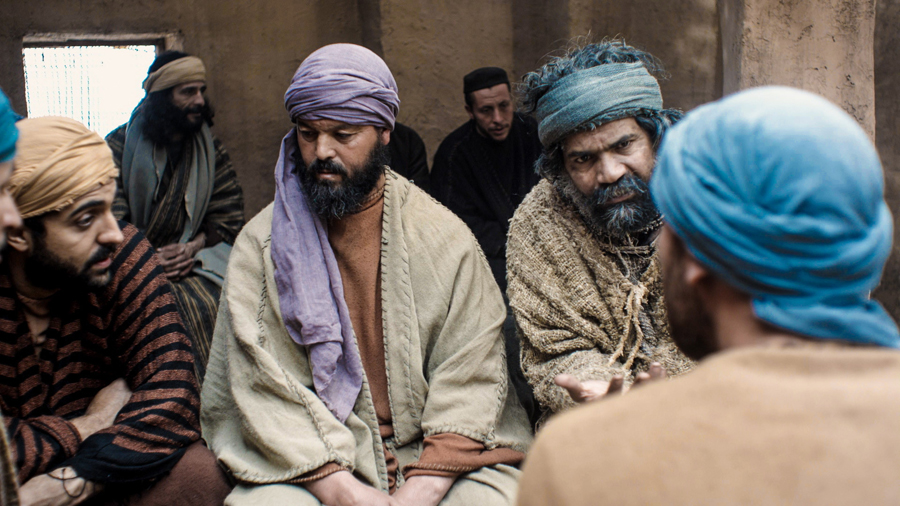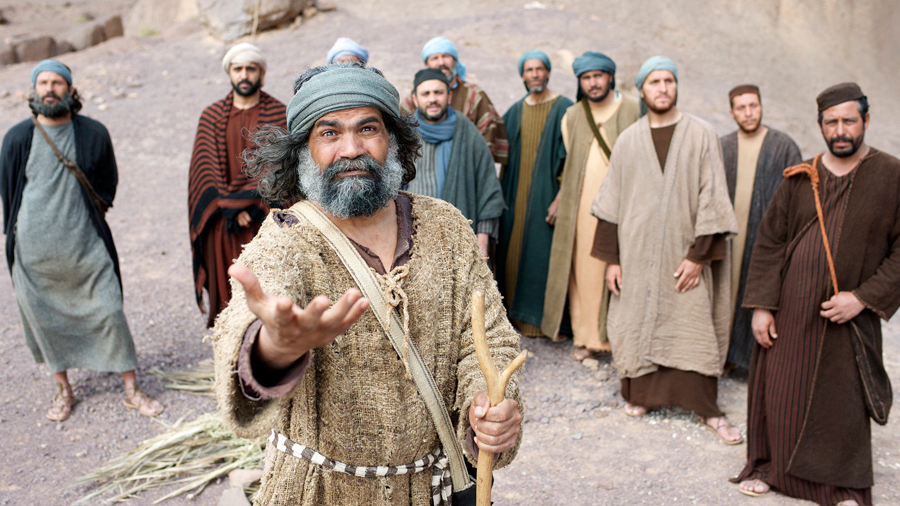Few commitments are more challenging to keep than genuinely forgiving someone who has wronged us deeply. Anytime I share a post, an article, or a Verse of the Day devotional about forgiveness, people send me very personal emails about the deep wounds they have endured and their struggle to forgive those who have wounded them. These deep wounds range from forgiving the person who killed a family member during a time of genocide to forgiving an unfaithful spouse to forgiving a dishonest business partner to forgiving a trusted relative who abused them to a mother trying to forgive the person who murdered her daughter. These are deep, grievous, and lasting wounds. They are evil released into the lives of often innocent people.
So, forgiveness is a hard grace for those wronged, yet Jesus taught and demonstrated that forgiveness is necessary! Forgiveness frees both the forgiven and the forgiver!
The hard part of forgiveness is that it is a commitment. Forgiveness is not a one-time gift: it is a lifetime of generosity toward someone who has hurt us deeply. We find the courage and offer genuine forgiveness for an offense. Then, the wound often gets opened again with an anniversary, a birthday that can't be celebrated, horrible dreams at night, another installment on a loan to pay, or a host of other things, make true forgiveness a hard and open-ended commitment.
So, let's look at how Jesus forgave a group of close friends who wronged him.
Notice what the resurrected Jesus calls his disciples when he reveals himself to Mary Magdalene and "the other Mary" (Matthew 28:1):
Then Jesus said to them, "Do not be afraid. Go and tell my brothers to go to Galilee; there they will see me" (Matthew 28:10).
Notice what the Lord calls his "eleven disciples" (Matthew 28:16) - even the number eleven is a reminder of how these closest friends of the Lord let Him down when He needed them most. Jesus called these "eleven" failures, "My brothers." I'm sure it wouldn't take you long to think of other names for these guys. Remember how they failed Him:
- Jesus' closest friends in the group couldn't stay awake and pray with Jesus an hour when His soul was in deep agony.
- Judas betrayed Jesus for thirty pieces of silver.
- Peter, after saying He would die for Jesus, denied Him three times even after being warned he would do so.
- All of them forsook Jesus and deserted Him when the soldiers arrested the Lord.

And don't think Jesus' resurrection immediately fixed everything in their character and weak faith. Even after Jesus rose from death, some doubted He was raised from the dead. Some still doubted even after He had shown them the scars in His hands, feet, and side, twice! They hid in a locked room even after the resurrected Jesus had revealed Himself to them and eaten fish in front of them to show that He was really alive and not a ghost.
Jesus claims this bunch of loose lug nuts, knuckleheads, and failures - or whatever term you want to call them - with the loving description, "my brothers." Jesus isn't using an empty title, a flippant description, or a sarcastic put down with this phrase. "My brothers" speaks to Jesus' love for them and His confidence in them to fulfill the mission He is about to give them (Matthew 28:18-20).
"My brothers." Jesus told us what this title means to him earlier in His ministry:
"Who is my mother, and who are my brothers?" Pointing to his disciples, he said, "Here are my mother and my brothers. For whoever does the will of my Father in heaven is my brother and sister and mother" (Matthew 12:48-50).
When Jesus referred to "the eleven" as "my brothers," he was speaking forgiveness and offering His empowering grace to His deeply flawed followers. This is the Lord, speaking about who "the eleven" will become when they have fully yielded their heart to Him. In doing this for His first disciples, Jesus is also doing two things for us!

First, Jesus reminds us that our lives can begin again, fresh and new (2 Corinthians 5:17). Even after our failures, we can be empowered by His grace to become someone vital to the Kingdom and important to God (Titus 3:3-8). The Lord can take the faithless, the failures, and the fearful and use them to change the world! We know it's true because He has already done it with "the eleven" whom He called, "my brothers" when they didn't deserve it!
Second, Jesus is challenging us to forgive those who have let us down and wronged us. He wants us to enable God's work to be accomplished in those who have hurt us. Since Jesus forgave His "eleven" "brothers" for letting Him down so completely, how can we not forgive those who have wounded us? This is especially true when we realize how much the Lord has forgiven us - remember Jesus' parable about the unmerciful servant (Matthew 18:21-35)! How can we withhold forgiveness and love from someone who is a "brother or sister for whom Christ died"? (Romans 14:15; 1 Corinthians 8:11).
The great power of God in Jesus' resurrection didn't end when Jesus' dead and lifeless body rose from the grave. No, this was just the beginning of the power of the resurrection, and few things are more powerful in the life of someone than forgiveness. When the commitment to forgive occurs, the power of the resurrection is demonstrated in everyday life. The reality of the Kingdom of God is experienced!
Jesus said:
"This, then, is how you should pray: "'Our Father in heaven,
hallowed be your name,
your kingdom come,
your will be done,
on earth as it is in heaven.
Give us today our daily bread. And forgive us our debts,
as we also have forgiven our debtors.
And lead us not into temptation,
but deliver us from the evil one.'"For if you forgive others when they sin against you, your heavenly Father will also forgive you" (Matthew 6:9-14).
The following questions are for your personal reflection and use in a small group Bible study or house church:
- Why is forgiveness hard for you?
- How is forgiveness liberating to the person forgiven?
- How is forgiveness liberating to the person who does the forgiving?
- Why do you believe Jesus is so adamant that His followers be forgiving people? (Read the Lord's Prayer, along with Jesus' editorial comment in Matthew 6:9-15 and also Jesus' parable about the unforgiving servant in Matthew 18:21-35 before answering this question!)
- The apostle Paul called us to forgive like we have been forgiven (Ephesians 4:32-5:1). How are we like God when we forgive?
- How can we help each other become more forgiving?
- Why are confrontation of sin and confession of sin so important to creating an environment of forgiveness? (Matthew 5:23-24; Matthew 18:15-20; James 5:16)
Special thanks to The Lumo Project and Free Bible Images for images related to the ministry of Jesus.












Comments
Have thoughts on this article? Leave a comment